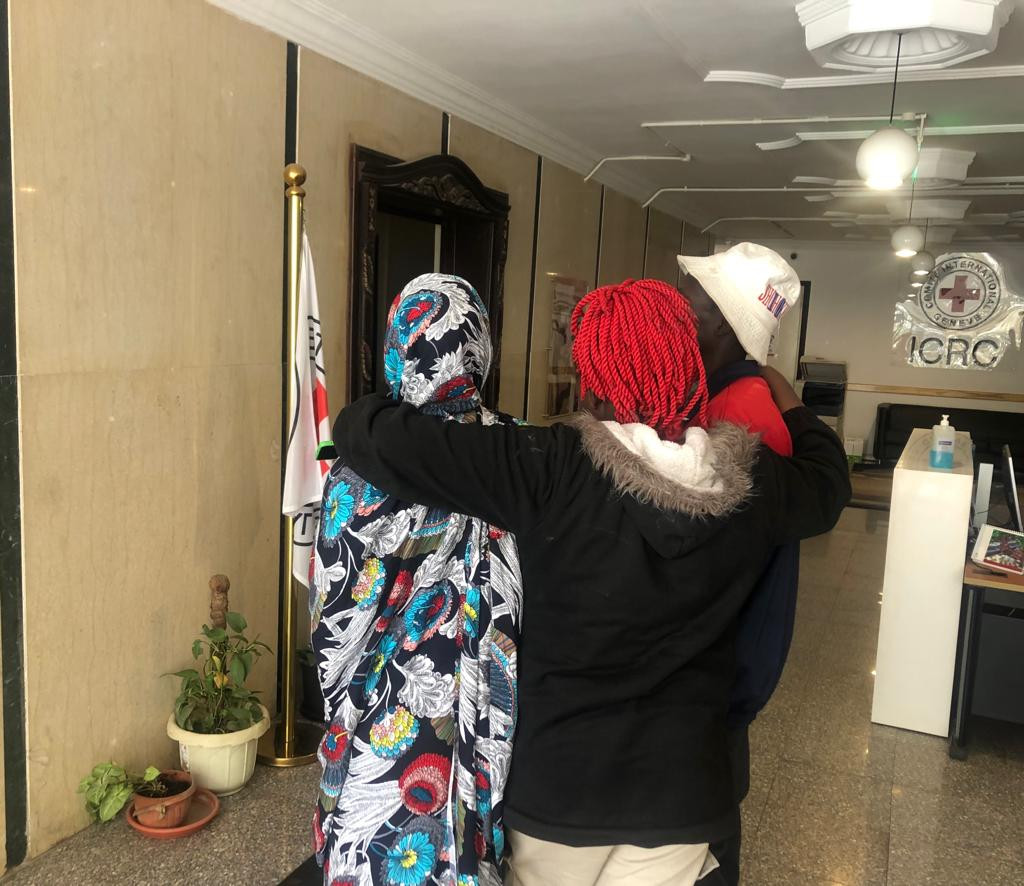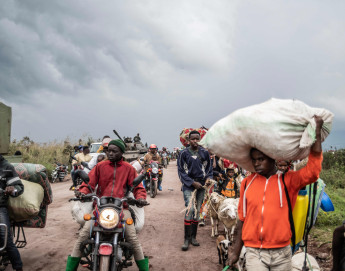
Restoring family links: the agony of separation and the joy of reunification

Restoring family links: the agony of separation and the joy of reunification
(Cairo, ICRC) Family separation can be one of the most difficult things a person can endure. Losing contact and not knowing the fate of a loved one can cause immense suffering to people. Every year, armed conflicts, other situations of violence, natural disasters and migration split up countless families, forcing them to cope with the uncertainty and the agony of losing contact with their loved ones.
Acknowledging this pressing humanitarian need, the International Committee of the Red Cross (ICRC) has been working to help reconnect separated families and address the issue of missing persons for more than 150 years.
The ICRC and National Red Cross and Red Crescent Societies work together around the world to locate people and put them back into contact with their relatives. This work, called Restoring Family Links (RFL), includes tracing family members, re-establishing and maintaining contact, reuniting families (under very specific circumstances) and seeking to clarify the fate and whereabouts of those who remain missing.
In Egypt, the ICRC provides RFL activities that include putting people in contact via telephone, internet, and hand-written messages, as well as tracing of missing persons. These services have helped hundreds of people to restore contact with their loved ones.
Egypt serves as a transit country on migrant routes from Africa and from conflict-stricken countries in the region. Migrants often lose family members on the migratory route and need support in restoring and maintaining their family links.
Over the past year, the ICRC’s delegation in Cairo has succeeded in locating 162 missing persons - within Egypt and neighboring countries - in collaboration with other ICRC delegations and Red Cross and Red Crescent Societies present in those countries. Sometimes, the reunification of family members happens at our delegation in Cairo, bringing joy and tears after years of separation. Below are two touching stories of family members reunified at our delegation in Cairo in April 2023.
Reuniting in Cairo after 7 years of separation
Majok is a South Sudanese national who used to live in Sudan with his family. In 2011, alongside his brother, he left Sudan and reached South Sudan to find work to support his family. Unfortunately, he lost contact with his family in 2016 and his brother was killed as a result of the conflict in South Sudan, prompting him to return to Sudan in 2021 to look for his mother and sister. He learnt from community members in Sudan that they left for Egypt. Although having no other information allowed him to locate them in Egypt, he decided to follow their steps and made his way to the country. Once in Cairo, he visited the ICRC’s delegation to open a tracing request.
After a few months of efforts, the ICRC was able to locate his mother and sister in Egypt by cross-checking their names with other humanitarian organizations, and Majok was able to reunite with both of them after seven years of separation in a heartwarming moment at our delegation in Cairo.
“I can’t express my happiness seeing them both. I was dying to find and see them,” Majok said joyfully. “Now I can rest assured having them by my side,” he added. Majok and his mother and sister left the ICRC’s delegation holding hands after seven years of separation.
Restoring contact with nine family members
Dribbie is an Ethiopian national who lost contact with nine of her family members after she left her country in 2016 because of security and economic conditions. She came to Egypt, alongside her daughter, searching for a better life and education. Dribbie stayed in contact with her family members by phone until 2020, after which she lost contact with them because of the violence in her hometown. She sought the help of the ICRC’s delegation in Cairo to locate her family members in Ethiopia and restore contact with them.
The ICRC was able to locate one of Dribbie’s family members in Ethiopia and facilitated a phone call between them. This family member was able to help Dribbie find the rest of her family members. Then Dribbie was able to talk to all of them over the phone for the first time after almost 3 years of loss of contact.

